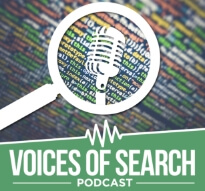Will internal linking continue to be a core pillar in building topical authority?
- Part 1Mastering AI Search with Topical Authority and Links
- Part 2 Will internal linking continue to be a core pillar in building topical authority?
- Part 3Invest SEO resources building comprehensive content vs acquiring high-quality backlinks
- Part 4The evolution of engagement metrics over the next 18 months
- Part 5The current state of topical authority in a world of AI-generated content
- Part 6Are content clusters built around entity relationships rather than keywords?
Show Notes
-
00:12: Topical Authority State Assessment
The current landscape requires brands to establish presence across multiple search platforms beyond Google, as user behavior shifts toward AI-powered search experiences.
-
00:39: Search Behavior Evolution Analysis
Traditional exploratory search patterns are declining as users arrive at Google with pre-existing knowledge, fundamentally changing how content discovery occurs.
-
01:36: AI Mode Implementation Impact
Google's gradual rollout of AI mode as the default search experience will significantly alter user behavior, with traditional web search becoming an alternative option.
-
02:38: Content I ovation Opportunities
While content quality becomes table stakes, semantic relationship building through strategic linking presents the greatest opportunity for differentiation and i ovation.
-
03:16: AI Search Optimization Future
The industry remains in experimental stages for AI search optimization, with ranking factors still undefined but eventual standardization expected.
-
- Part 1Mastering AI Search with Topical Authority and Links
- Part 2 Will internal linking continue to be a core pillar in building topical authority?
- Part 3Invest SEO resources building comprehensive content vs acquiring high-quality backlinks
- Part 4The evolution of engagement metrics over the next 18 months
- Part 5The current state of topical authority in a world of AI-generated content
- Part 6Are content clusters built around entity relationships rather than keywords?
Up Next:
-
Part 1Mastering AI Search with Topical Authority and Links
AI-generated content is flooding search results, making topical authority more critical than ever. Daniel Horowitz, SEO strategist at Informatica, shares how enterprise brands can maintain competitive advantage as search behavior shifts across multiple platforms including Google's AI mode, Perplexity, and social search channels. The discussion covers strategic approaches for establishing semantic relationships through advanced internal linking architectures and building cross-platform authority signals that perform in both traditional and AI-powered search environments.
Play Podcast -
Part 2Will internal linking continue to be a core pillar in building topical authority?
Topical authority requires omnipresence across evolving search platforms beyond traditional Google dominance. Daniel Horowitz, SEO strategist at Informatica, demonstrates how enterprise brands must adapt to synthetic queries, AI mode, and multi-platform discovery behaviors where users arrive pre-informed rather than exploratory. The discussion covers semantic relationship optimization through strategic internal linking frameworks, ranking factor adaptation strategies for AI-powered search environments, and scalable approaches for meeting changing user demand across ChatGPT search, Perplexity, and social discovery platforms.
-
Part 3Invest SEO resources building comprehensive content vs acquiring high-quality backlinks
Enterprise brands face a critical resource allocation decision between content development and link acquisition strategies. Daniel Horowitz, SEO leader at Informatica, shares insights from managing search strategy at a global data management company serving Fortune 500 clients. The discussion covers topical authority requirements across emerging search platforms including AI mode, synthetic queries, and alternative search engines beyond traditional Google results. Horowitz outlines strategic frameworks for omnipresence marketing and adapting content distribution to evolving user search behaviors in an AI-driven landscape.
Play Podcast -
Part 4The evolution of engagement metrics over the next 18 months
Topical authority requires omnipresence across AI-powered search platforms. Daniel Horowitz, SEO leader at Informatica, explains how brands must establish authority across Google's AI mode, ChatGPT search, Perplexity, and social platforms as user behavior shifts from exploration to informed querying. The discussion covers semantic relationship optimization through strategic internal linking and the experimental approaches needed to crack emerging AI search ranking factors.
Play Podcast -
Part 5The current state of topical authority in a world of AI-generated content
AI-generated content has fundamentally shifted how brands must establish topical authority across multiple search platforms. Daniel Horowitz, SEO strategist at Informatica, explains how enterprise brands are adapting their content strategies to maintain visibility as search behavior evolves beyond traditional Google queries. The discussion covers strategic approaches for building semantic relationships through advanced internal linking architectures and developing content distribution frameworks that address synthetic queries across emerging AI search platforms. Horowitz outlines practical methods for creating topical authority signals that perform effectively in both traditional web results and AI-powered search experiences.
Play Podcast -
Part 6Are content clusters built around entity relationships rather than keywords?
Enterprise brands face fragmented search behavior across multiple AI-powered platforms. Daniel Horowitz, SEO strategist at Informatica, explains how brands must establish topical authority across Google AI mode, ChatGPT search, and social discovery platforms to capture modern search intent. The discussion covers strategic positioning for synthetic queries, optimizing for AI overview inclusion, and building semantic relationships through advanced internal linking structures that support entity-based content clusters rather than traditional keyword groupings.
Play Podcast








